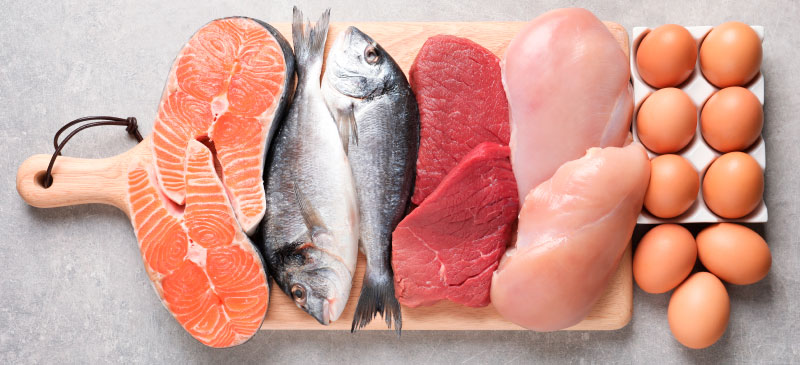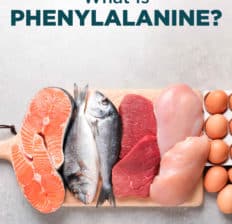This Dr. Axe content is medically reviewed or fact checked to ensure factually accurate information.
With strict editorial sourcing guidelines, we only link to academic research institutions, reputable media sites and, when research is available, medically peer-reviewed studies. Note that the numbers in parentheses (1, 2, etc.) are clickable links to these studies.
The information in our articles is NOT intended to replace a one-on-one relationship with a qualified health care professional and is not intended as medical advice.
This article is based on scientific evidence, written by experts and fact checked by our trained editorial staff. Note that the numbers in parentheses (1, 2, etc.) are clickable links to medically peer-reviewed studies.
Our team includes licensed nutritionists and dietitians, certified health education specialists, as well as certified strength and conditioning specialists, personal trainers and corrective exercise specialists. Our team aims to be not only thorough with its research, but also objective and unbiased.
The information in our articles is NOT intended to replace a one-on-one relationship with a qualified health care professional and is not intended as medical advice.
Phenylalanine Benefits for Mental Health (Plus, Dosage and More)
January 13, 2023

Have you heard of the amino acid phenylalanine? This crucial compound is absolutely vital for several aspects of health and plays a central role in maintaining normal growth and development.
It’s also important for the synthesis of certain hormones and neurotransmitters that are involved in regulating mood and body weight.
So what is the purpose of phenylalanine? Is phenylalanine the same thing as aspartame, and does phenylalanine increase dopamine?
Keep reading for everything you need to know about this essential amino acid.
What Is Phenylalanine? (Role in Body)
According to Merriam-Webster, the official phenylalanine definition is “an essential amino acid C9H11NO2 that is converted in the normal body to tyrosine.” Much like other amino acids like L-alanine, arginine and leucine, phenylalanine is considered an important building block that is used to form the proteins that your body needs to function and thrive.
Because it’s considered “essential,” your body is unable to produce it on its own and needs to obtain it from food or supplemental sources instead.
“Phe” is the official phenylalanine abbreviation. Chemically speaking, the phenylalanine structure is aromatic, and it’s considered neutral.
Is phenylalanine polar? Because of its benzyl side chain, the Phe amino acid is considered non-polar and hydrophobic.
This amino acid is used to make many other important compounds, including tyrosine, dopamine, norepinephrine and epinephrine. Emerging research also shows that this key amino acid could play a role in the treatment of several conditions, including depression, Parkinson’s disease and chronic pain.
There are some who may have issues with phenylalanine metabolism, however, and may not be able to process or break it down efficiently. For these individuals, consuming excess amounts can cause serious side effects, ranging from seizures to developmental delays and beyond.
Benefits
1. Used to Produce Other Compounds
Like other amino acids, phenylalanine plays a vital role in the production of other key compounds that are important to health. For example, it’s used to produce dopamine, a neurotransmitter that is involved in learning, memory and emotion.
The body also converts phenylalanine to tyrosine, an amino acid that aids in the synthesis of proteins. It’s also involved in the production of norepinephrine and epinephrine, both of which are neurotransmitters released by the body in response to stressful situations.
A deficiency in this important amino acid can cause a long list of symptoms, including confusion, depression, memory loss and low energy levels.
2. May Reduce Symptoms of Depression
One of the top L-phenylalanine benefits is its ability to improve mood and protect against depression. Although more research is needed, some studies have found that it could have powerful mood-boosting properties.
In fact, a study published in the Journal of Neural Transmission found that administering 75–200 milligrams of DL-phenylalanine per day to 20 people improved several symptoms of depression, including overall mood and agitation. Another study found that combining L-phenylalanine with L-deprenyl, a medication used to prevent the breakdown of dopamine, had a beneficial effect on symptoms of depression in 90 percent of outpatient participants.
3. Relieves Chronic Pain
Some research has found that phenylalanine could act as a natural pain reliever to help reduce and manage chronic pain. One study even reported that it has been shown to have analgesic properties in both human and animal trials, noting that it may help reduce pain caused by a variety of conditions.
Another animal study showed that injecting horses with a combination of amino acids, including D-phenylalanine and D-leucine, helped reduce chronic pain by preserving the activity of specific endorphins in the brain.
4. May Promote Weight Loss
Does L-phenylalanine help with weight loss? While more studies on the link between L-phenylalanine and weight loss are definitely needed, some emerging evidence shows that phenylalanine could have a big impact when it comes to your waistline.
A study conducted by the Department of Gastroenterology at St. Bartholomew’s Hospital in London actually found that administering L-phenylalanine to 10 participants before meals reduced food intake and increased levels of cholecystokinin (CCK), a hormone that stimulates digestion and helps keep appetite under control. Another in vitro study in the American Journal of Physiology had similar findings, noting that phenylalanine was able to increase secretion of CCK, which could potentially aid in weight loss.
Risks and Side Effects
Is phenylalanine bad for your health? For most people, it’s safe and associated with very few adverse side effects.
Although it’s found naturally in many foods, it’s also sometimes added to products as well. Like other amino acids, phenylalanine is generally recognized as safe by the Food and Drug Administration when used as a food additive.
In supplement form, it has been shown to be well-tolerated in doses up to 45 milligrams per pound of body weight. Some of the most common side effects associated with high doses include nausea, heartburn, fatigue, headaches, constipation and anxiety.
Phenylalanine supplements are not recommended for women who are pregnant or breastfeeding, as research is limited on the safety for these specific populations. Those with schizophrenia should also avoid taking phenylalanine as it may cause tardive dyskinesia, a disorder characterized by involuntary and repetitive movements.
Furthermore, those with phenylketonuria (PKU) need to be mindful of phenylalanine intake. PKU is a birth defect and form of phenylalanine hydroxylase deficiency that impairs the body’s ability to process phenylalanine efficiently, resulting in a buildup in the blood.
Why is phenylalanine buildup bad, and what happens when phenylalanine accumulates in the body? Left untreated, PKU can cause growth failure, seizures, developmental delays and mental disability.
Phenylketonurics are generally advised to follow a low-protein, low-phenylalanine diet, which helps limit their intake of foods with phenylalanine to prevent side effects.
Is phenylalanine bad for diabetics? And is this amino acid safe and effective for the general population?
For most adults, there are very few phenylalanine dangers or side effects to consider. In fact, this amino acid is an important part of the diet and essential for the production of several hormones and neurotransmitters.
However, it is important to get your this amino acid from natural sources rather than artificial sweeteners like aspartame.
What are the negative effects of aspartame? There’s a lot of controversy about potential aspartame dangers, with research suggesting that non-nutritive sweeteners may impact cancer growth and gut health.
Other possible aspartame effects include alterations in brain function and metabolic health.
Those with PKU also need to be mindful of their intake. This disorder impairs the body’s ability to process phenylalanine efficiently, which can cause excess levels to build up in the blood.
Potential phenylalanine effects for those with PKU may include mental disabilities, developmental delays and seizures.
Taking phenylalanine or dopamine supplements is not recommended for those taking other psychiatric medications or women who are pregnant or breastfeeding. It’s also not recommended for those taking Baclofen, as it may decrease its absorption.
As an antispasmodic medication, Baclofen uses include treating muscle spasms, stiffness and pain.
Foods and Supplements
Phenylalanine is found naturally in a wide array of food sources, including both plant-based and animal-based protein sources. Meat, fish and poultry are a few of the most common foods high in phenylalanine, along with eggs, nuts, seeds and soy products.
Rather than focusing on filling your plate with phenylalanine foods, however, it’s best to simply focus on incorporating a variety of nutrient-dense protein foods into your diet.
As a food additive, you can also find phenylalanine in gum, soda and other diet products. This is because phenylalanine is found in aspartame, which is often used as a calorie-free sugar substitute in many low-calorie products.
What is aspartame? Is aspartame bad for you?
Aspartame is an artificial sweetener made up of aspartic acid and phenylalanine. Although it has been approved for use by the FDA, serious questions have been raised regarding its safety.
In particular, aspartame and other artificial sweeteners have been studied for their potential effects on metabolic health and the gut microbiome, as well as their role in other issues like cancer and mental disorders. Fortunately, it’s easy to find gum without aspartame, and there are plenty of other natural sugar substitutes you can enjoy instead as part of a healthy diet.
Phenylalanine supplements are also available for those looking for methods for how to increase dopamine with supplements. These supplements are usually found in powder or capsule form and have several potential uses. They are primarily used to boost mood and mental clarity.
How to Use It (and Proper Dosage)
Ideally, you should be able to meet the majority of your amino acid needs through food sources alone. If you do opt to take a phenylalanine supplement, be sure to use only as directed, and consult with your doctor if you’re taking other medications or have any underlying health conditions.
These supplements are not recommended for those using antidepressants or other psychiatric medications, as they may cause adverse side effects or interactions.
It’s best to take supplements on an empty stomach, about an hour or so before eating to maximize absorption. Most supplement manufacturers advise taking around 1,000–1,500 milligrams daily, which is typically divided into three or four smaller doses.
Recipes
Looking for an easy way to get your fix of natural dopamine by upping your intake of phenylalanine? Try incorporating a few of these high-protein, dopamine foods into your daily diet:
- Vegetarian Pozole Verde with Fava Beans
- Salmon Patties with Almond Flour Crackers
- Huevos Rancheros
- Thai Coconut Chicken Soup
- Buddha Bowl with Flank Steak and Cashew Sauce
Final Thoughts
- The phenylalanine amino acid is an essential amino acid that is important for growth and development as well as the production of several neurotransmitters and hormones.
- Some studies suggest this amino acid could promote weight loss, reduce chronic pain and protect against depression.
- In addition to being found in protein foods, it’s also a component of aspartame. For this reason, you can find it in soda, chewing gum and many diet products.
- However, because of the potential aspartame dangers, it’s best to meet your needs primarily through whole food sources instead.
- This amino acid is found naturally in many food sources and can be safely consumed by most people without any adverse effects. However, those with PKU need to limit their intake and follow a special low-protein diet to keep blood levels normal.





